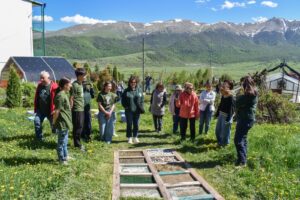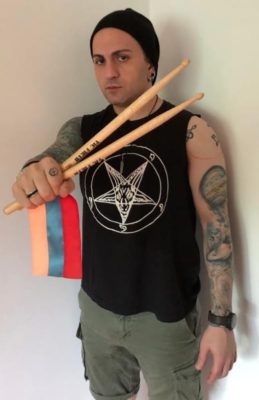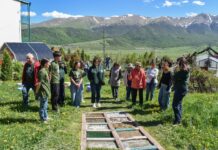YEREVAN / VÄSTERVIK, Sweden — Vartan Garabedian is a musician, born in 1986 in Beirut. He studied at Armenian schools in Beirut — the Yeghishe Manoukian High School and Souren Khanamirian College. Later, he studied at the Polyglot Technical College of Beirut.
He lived in Romania, and from 2006 to 2010, he was the site manager at P.A.B. Romania construction company in Arad; in 2011-2015 he was the drummer with the band Grimegod in Arad, while in 2013-2016 he played with the Negură Bunget black metal band in Timisoara, also working as the basketball coach of Valbon team. Now Vartan lives in Västervik in Sweden with his Italian wife and newborn son, working as the senior site manager of Renovation of Sweden AB construction company.
Vartan, your biography says you were first interested in drums at the age of four. How so?
I was even younger when I started hitting on my mother’s saucepans. One day my grandmother was present when I started making noises on the pots, so on my birthday I received my first drum set as a gift from my grandmother. It all started there, and I have been playing for 30 years.
You lived for about ten years in Romania. Why did you go there and were you part of Romanian-Armenian community life?
I went to Romania at the end of 2005. There was a construction company I started working with. I lived in the city of Arad, which has an interesting Armenian history. Two hundred and fifty years ago, when the Turks arrived there, there were also Armenians with them. There is a river in Arad, the water of which was very abundant. There is an old man in Arad who still lives there. His name is Grig Nazarian. I learned from him that 240 years ago that the Armenians who remained in Arad named the city after the abundant (arad in Armenian) water of the river. It is not something he invented himself, but he read it in a Romanian book published more than 100 years ago. Today’s Romanian-Armenians are descendants of those who came after the Genocide in Ottoman Empire, most of them do not speak Armenian, but their love of Armenia is very real. Wherever you meet Romanian-Armenians, their eyes fill with joy when they know that the other person is Armenian.








